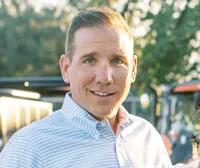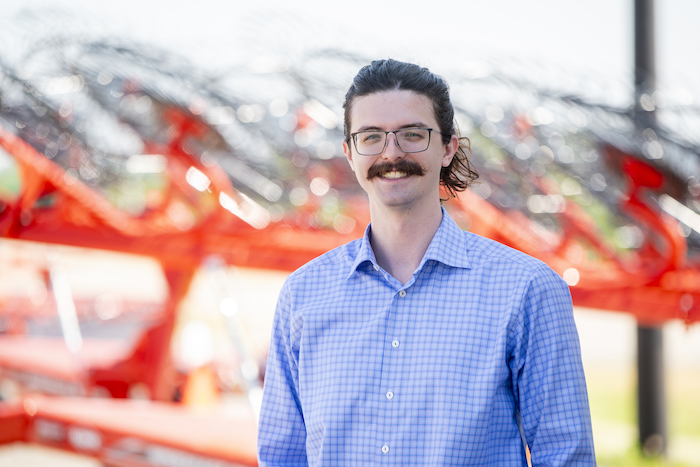Todd Bachman, CEO of 11-store Kubota dealership Florida Coast Equipment, has been busy this past year. The dealership acquired its 11th location in Kissimmee, Fla., in January and over the last 12 months, has taken on 7 new locations. According to Ag Equipment Intelligence’s 2022 Big Dealer Report, this ties them with Bingham Equipment in Arizona for the largest Kubota ag equipment dealership in North America.
Bachman says that aside from a few other “forward-thinking” dealers, the company’s aggressive M&A activity is unique in the realm of Kubota dealers. However, he believes others will begin to follow. He attributes this to Kubota’s growth as a manufacturer and the expansion of its equipment offerings and market shares.
Bachman sat down with Farm Equipment to discuss what he learned from this rapid string of acquisitions, how the company changed and what advice he has for other dealers looking to do the same.
Dealer Takeaways for M&A Plans
- Be ready to adopt a corporate mindset and structure as you approach the 3-4 location mark.
- Build your business for 5-10 years down the road, with both your physical locations and your management team.
- Over-communicate with your OEM on your M&A plans.
- Dealer-principals must be ready to transition from a “doer” to an overseer.
What prompted this wave of M&A activity over the last year?
Todd Bachman: One of the big reasons we’ve seen such movement is that Kubota really has begun to mature as a manufacturer.
If we go back 10 years ago, the largest tractor we had was 100 horsepower. We had mini excavators and wheel loaders. Many Kubota dealers looked at their service department really as a necessary evil, and there was very little money in our facilities. We were really a compact tractor dealership.
Today, they give you an incredible product line. And in delivering the larger, higher horsepower M7 tractors, as well as construction equipment, there were some real facility and technology needs. There are real needs to support that customer base that required consolidation.
It’s hard for the single store to be able to support the large construction or agricultural production equipment. When customers are purchasing 20 and 30 machines, there’s a real requirement in facilities and service trucks and things like that.
So it was really the market. Kubota maturing and giving us a great product, and the marketing accepting it, is what really brought on these acquisitions so quickly.
What are some of the challenges you’ve come across in completing all these acquisitions?
Bachman: There’s a lot we have now that we didn’t before. We have a director of HR and 2-3 people in that department. I didn’t even know what HR was a year ago. I don’t know how I ever existed without it. I think our team members have a much better work experience and environment now.
We have a director of training, and
I never thought we would have that. We have a director of safety, who has been just amazing. We’ve been months now without an accident with 60 trucks on the road moving all the time.
Learning that portion of the business has been very different. I always looked at becoming corporate as a negative. But now our team members have a much better, safer experience. I think they’re finding much more fulfillment in being a part of the team now, which ultimately translates into a better customer experience. When you’ve got an engaged team, they’ll take really good care of your customers.
Another thing I’m learning is understanding the numbers today is very different from understanding the numbers even a few months ago. A year ago, if we sold 10-12 machines a day, I’d get pretty excited. If we sell less than 20-25 machines a day now, I’m depressed.
We’re having to learn new things every day, but there’s some amazing synergies that have come out of it. Obviously parts is one of them. Now if we don’t have a part in one store, chances are we have it in another store, and we can get it to the customer the next day. Having inventory in this market has been very helpful. We’re struggling like everyone else, but we’ve got a bigger bucket to pull from now.
“I always looked at becoming corporate as a negative. But now our team members have a much better, safer experience…”
Another challenge has been communicating to our customers that we’re growing and that our growing pains aren’t their problem. Customers need to understand we’re not losing touch with the business or with them.
How did your staff react to “going corporate”?
Bachman: Sadly, not everyone was on board. Not all our staff signed up for this growth. What we are today is not what everybody wanted. And we’ve tried to deal with that as humanely as possible.
Honestly, we grew so fast that we realized very quickly we would need a corporate structure. I don’t know what number of locations it was when we realized we had to change, but the nice thing is we were previously 4 locations about 4 hours from each other. We had a lot of things centralized already and had a head start.
I would argue that going from 2 to 3 stores is harder than going from 4 to 11 stores. We had learned some lessons through that process.
Once you go past the second store, it’s really no longer about you. The single store is really about feeling things out. Everything traditionally runs through the dealer-principal or the general manager.
That individual’s mood of the day determines the mood at the dealership. The dealership really takes on that person’s identity, and you can manage that up to 2 stores. You understand your customers, and you know most of them personally.
When you get to 3, you begin to stretch your ability to do that. And at 4 stores, if you haven’t begun to put managers in place and begun to centralize some things, the wheels really fall off the bus.
At that point, we had put managers in place, other people had authority to order, things like that, so the dealerships could run without one individual’s involvement in the day-to-day.
To sum it up, you go from being a “doer” to someone that oversees, and we had already made that transition. So it did make this growth a little bit easier, but there was nothing easy about what we did or what we’re doing. I think we were able to adjust more quickly because we had been through this.
What advice would you give to other dealers who are looking to achieve the same growth you’ve accomplished?
Bachman: Be ready to work your rear end off. I spent about 240 days in hotels last year. Make sure you’ve got the support to work this hard.
Hire really good people and hire more than you need for where you are today. One thing we did along the way was build for what we thought we would need in 2-3 years. I would say start building for what you think you’re going to need in 5-10 years. Because building and upgrading facilities is a lot of work and a lot of money. You don’t want to do it twice.
Fort Pierce is a great example. With our Fort Pierce location, we built from scratch. We believed that was going to be a 10 year facility. We moved in, and 9 months later, we had doubled our business. And at that store today, we’ve just bought 3.5 additional acres where we can put another 5,000 square foot shop out back. You’ve got to have the financial resources, too. You need partners and banking relationships.
I would also advice dealers to not keep their manufacturer in the dark. I try to over-communicate what we’re doing, because they are our partners and I do not want an adversarial relationship. I don’t want to go a direction where they’re adamantly opposed either. I look at Kubota, frankly, as my wife. We’re going down this road together, we’re going to disagree at times, but I want to make sure we are always communicating.
What are your plans for the future of Florida Coast Equipment?
Bachman: Right now, we are focused on operational excellence. We’ve had a lot of moving parts. How we did business 8 months ago is different than how we do business today, but we’re working really hard on this culture right now.
Our motto around here is not necessarily politically correct, but it’s the hashtag #MSH, and that’s “make ‘stuff’ happen.” I think that’s what has made us special is we really work hard to make sure we’re fulfilling our commitments. We try to go the extra mile.
Making sure we take that culture from 80 people to 220 people and making sure everybody’s working at the same pace and aggressively fulfilling our commitment is really what we’ve got to be laser focused on. The way I look at this is if we do that, and we’ve got a great manufacturer, other opportunities are going to present themselves.







